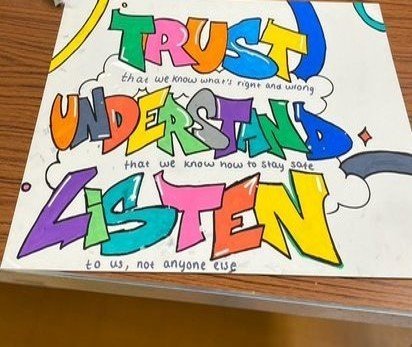Newsletter May
Check out our May 2023 Newsletter for updates on the course and some recent cases that have been in the news recently!
If you started and got stuck, let us know how we can help you. The free offer of this training ends in June.To contribute to the evaluation please email admin@enable-pathway.com.
New cases this month
Primary schools are finding that year 6 children are skilled at deception. Don’t underestimate their skills! They are capable of making fake accounts pretending to be someone else, with a detailed profile taken from legitimate accounts. It could be your profile!Apps such as Discord are very popular with gamers and other users. You may not often look at it but take time to check it out. Perhaps search regularly for your own online presence.
‘Microsoft Essentials’ scams are also common right now.
You might receive a genuine seeming email from Microsoft Security Essentials. Money expert Martin Lewis reported on a BBC Podcast that a member of his family had been scammed in this way. The scammers were on the phone pretending to ‘help’ them for hours while stealing banking details. Banks are aware of this scam. Send suspicious emails to report@phishing.gov.uk texts to 7726 and report scam websites to www.ncsc.gov.uk
The big debate around AI
It has been suggested that a person’s voice on a video can be harvested and artificial intelligence used to make a video that sounds genuinely like the original person. Impersonation is going to be a major concern if a few moments of speech on a video can be wrongfully cloned. Here is a heart wrenching example:
AI used to clone child’s voice in kidnap scam.
It has been reported that fraudsters can use AI to steal and use a few seconds of someone’s voice to create a credible scam. A call from what sounds like her child’s voice, tells the Mum, I’ve been kidnapped’ followed by a text demanding money.Something similar happened to an Arizona mother who said she was 100% certain that the AI clone she heard sobbing, was her daughter’s voice. The girl’s voice cried ‘Mum, I messed up’ before a male voice demanded money with threats about what he would do to her daughter if the mother called police. Law enforcement were called and the daughter was safe and sound elsewhere with friends..Worried teens are self-diagnosing on TikTok and other apps.
An editorial article in Psychiatric Times, May 8th 2023, reports that there are many self-diagnosis tools for ADHD online. This brings large numbers of patients to the door of a psychiatrist, who then may find, after careful assessment, that the young person does not have ADHD. Young women are the most common patients who turn up in his office says Paul Weigle MD. There are many reasons why people might feel relieved to obtain a diagnosis to explain their feelings. They might also want to belong to a group of people seen as heroically battling difficulties, or they might identify with an influencer or pop star who has mental health difficulties. It might explain ‘why I always feel different’, a common emotion in teens.However comfortable it is searching for health information and support online, instead of face to face with a stranger in an office – it is not always valid advice.One review of 500 mental health advice videos on TikTok, found 84% to be inaccurate. Some online content is downright misleading or carries dangerous advice or suggestions such as encouraging anorexia.More subtle is the role of the influencer who by their every move and utterance can affect what their adoring followers do. They too might promote unsafe advice.Read the full post here
How I handled this…
Could you contribute to our feature on the home page?Real life stories of how you handled things help other foster carers. Tell us in a few words what the issue was and how you dealt with it. Good advice and less successful efforts are welcomed as we all learn from your real life stories. Keep it short and submit it to admin@enable- pathway.com. Your contributions are anonymised. We love to hear from you.The National Cyber Security Centre
The NCSC has created new information for parents and families to protect you. Read the information hereIn Other News
- Newsletter
- Uncategorised
- Newsletter
- Newsletter










